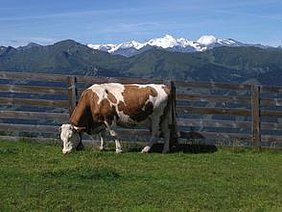The liability of animal owners is a special tort and regulates the liability for damages caused by animals. Specifically, Sec. 1320 para. 1 of the Austrian Civil Code (ABGB) states:
If someone is damaged by an animal, the person who drove, irritated or neglected to keep it, is responsible. The person keeping the animal is responsible if he or she does not prove that he or she had provided the necessary care or supervision.
For damage caused by animals, the person who "drove, irritated or neglected to keep the animal" is generally responsible. However, the law places the burden of proof on the owner of the animal regarding the necessary custody and supervision: If the owner cannot prove that he or she provided the necessary care or supervision of the animal, the owner is liable for the damage.
Last summer, the question of how cows grazing on an alpine pasture should be properly kept or supervised and whether or when liability of the animal owner can be based on this liability basis was the subject of numerous discussions.
The legislator is now seeking clarification through the Liability Law Amendment Act 2019 (HaftRÄG 2019), which was promulgated with Federal Law Gazette No. I 69/2019 on 23.07.2019 and enters into force on 24.07.2019. Thus, a new paragraph 2 is added to the central provision on animal owner liability, which contains the following provision:
In alpine and pasture farming, the keeper can refer to recognised standards of animal husbandry when assessing the question of what custody is necessary. Otherwise, he has to take the measures required with regard to the dangerousness of the animals known to him, the possibilities reasonably available to him to avoid such dangers and the expected personal responsibility of other persons. The expected personal responsibility of visitors to alpine pastures and meadows is based on the dangers posed by alpine pasture and meadow management, traffic practice and applicable rules of conduct.
The law thus creates a guideline for what custody is owed in the case of grazing livestock. In principle, the keeper can use "recognised standards of animal husbandry". However, if the keeper is aware that the animal is particularly dangerous, he or she will have to do more than rely on the recognised standards and would have to do what is reasonable in order to prevent damage. In doing so, however, the animal keeper can rely on the "expected personal responsibility of visitors to alpine pastures and meadows". The law thus recognises something like the "reasonable hiker" who behaves "reasonably" when encountering grazing animals.
Since this expected personal responsibility of visitors to alpine pastures and meadows is to be oriented towards the imminent dangers, traffic practice and applicable rules of conduct, it is, however, advisable for keepers of grazing livestock to establish such rules of conduct or to point them out. If such rules of conduct or indications are in place, but a visitor nevertheless behaves contrary to them, the liability of the animal keeper can probably be rightly denied in the case of animals that are not known to be dangerous.





